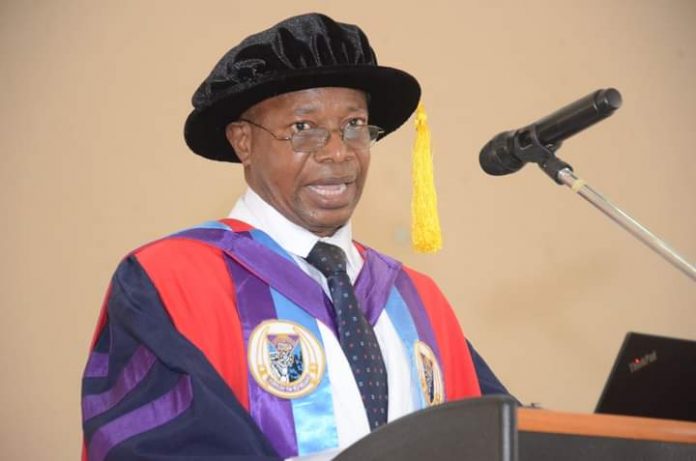
Professor Oluayo Anthony Bello-Olusoji has canvassed for the establishment of Shellfish Bank to deal with classification or mapping of the indigenous molluscs in Nigeria for cultivation and harvesting.
Bello-Olusoji, who is a professor of Fisheries Management at the Federal University of Technology, Akure (FUTA) made this known on Tuesday when he delivered the institution’s Inaugural Lecture at the University auditorium.
Speaking during the 124th series under the theme: Balanced Equation, the Missing Value- Shellfish, the university administrator said Government should focus on aquaculture as a matter of priority because of its economic impact.
“The creeks and brackish water areas have previously been identified as the best places for aquaculture in Nigeria. These wetland areas can be used to produce or culture shellfish especially crustaceans and molluscs. These future locations can be good habitat (bank) for molluscs, and from these, farmers can select good molluscs seed periodically”.
A graduate of Zoology from the University of Lagos said that a consistent source of fish and shellfish is essential for the nutritional value and financial health of a large segment of the world population.
The Pioneer Head, Department of Fisheries and Aquaculture Technology asserted that for balanced equation to be achieved, we must go back to the water as therein lies renewable and nonrenewable treasures.
“Capture fisheries have not been able to keep pace with the growing demand, while aquaculture is still growing up and producing less than 20% global demand; shellfish is the only important food source among the capture fisheries that is still primarily gathered from the wild rather than farmed.
Professor Bello-Olusoji who had his Master’s and PhD degrees at University of Ibadan and Federal University of Technology Akure (FUTA) respectively declared that there is urgent need to turn to shellfish production to meet up with the ever-increasing demand to balance the quest for food.
The fisheries expert who joined the services of FUTA as Assistant Lecturer in 1992 and rose to become professor of international repute disclosed that regular eating of shellfish may boost man’s immunity, aid weight loss and promote brain and heart health.
According to the prominent fisheries research fellow, seafood has become accessible and very safe for the majority of the population globally and a good source of the ‘long-chain omega-3 poly-unsaturated fatty acids’ (LCn-3PUFA or Docosahexaenoic acid – DHA).
The erudite scholar whose over 100 research works has appeared in International Fisheries journal posited that production of shellfish such as shrimps, crabs, mussels, oyster and snails among others will address many issues bothering on Sustenance of the United Nations 2030 Agenda on Food Security and other SDGs 1,2,8 and 14.
He added that shellfish production can enhance socio-economic and job creation opportunities.
“The seafood produced up to 140 million tonnes in total, of which the value of aquaculture part is about US$60 billion and the value of capture fisheries about US$80 billion.
“Nigeria has a long coastline of 853 kilometres, and the Niger Delta has a large unused beach edge, which can be used for coastal shrimp farming without destroying mangroves. There is the potential for an annual income of over $384 million to be generated from Shrimp production if there is increased production, favourable climatic conditions, stall in wild capture and a wide demand-supply gap” he said.
He recommended that freshwater prawn farming in the country should be investigated so that there would be development of human capacity and technology as well as need to increase human resources and technology in order to obtain optimum and sustainable outcomes.
“Based on the results generated from my studies, growth and development of shellfish are hampered by obnoxious discharge of toxic substances to the water bodies. Therefore, efforts should be geared towards reducing the impact of effluent on our aquatic habitats. These include educating our farmers and cautioning them against indiscriminate and accidental discharge of some locally-processed products as well as enacting stricter policies and laws” he concluded.
The event which was well attended by the university community and distinguished and eminent scholars from the academia was presided over by the Vice Chancellor, Federal University of Technology, Akure, (FUTA) Professor Joseph Adeola Fuwape.















